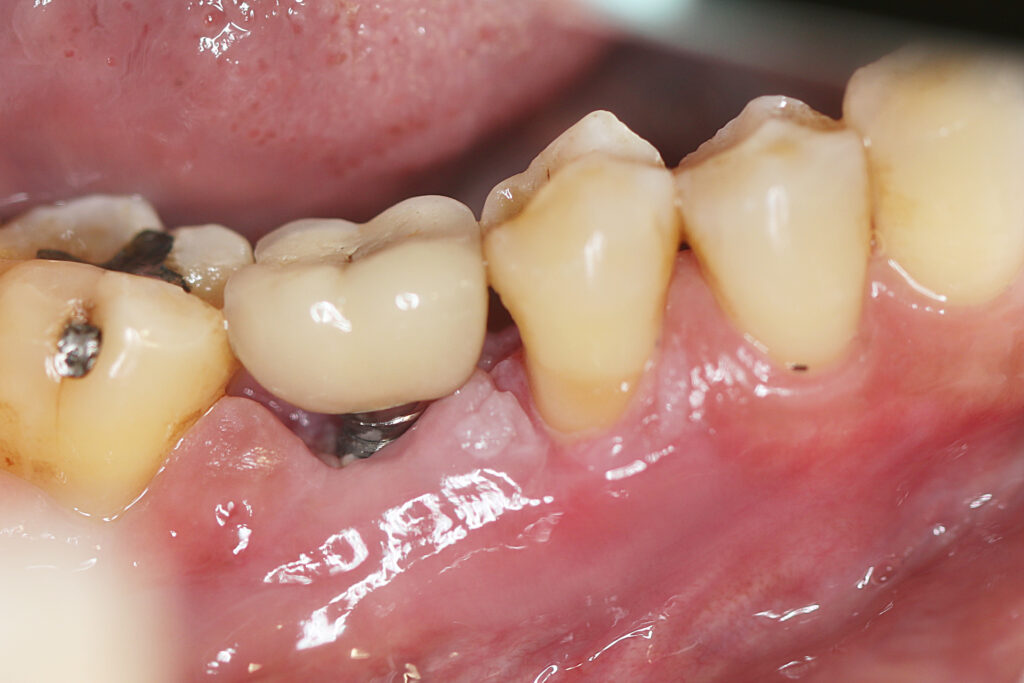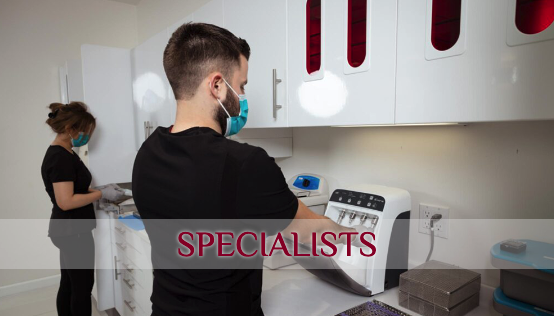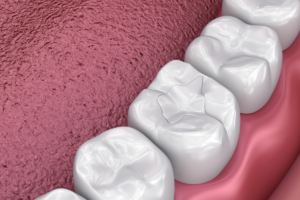The risk of a dental implant infection is higher than you think if the step-by-step procedure is not performed precisely. This article will elaborate on signs, treatments, and how to prevent implant infection or peri-implantitis, so you can act fast, see the signs, and seek treatment before it damages your gum permanently. If you are considering getting implants or already have implants, this article is a must-read.
What Is a Dental Implant Infection?

In another article, we have explained what dental implants are and answered all of the questions regarding how they work. Peri-implantitis or dental implant infection is a condition that is characterized by bone and gum infection at the site of the implant. It can vary from a slight soreness to gum and bone degradation. However, there is little to no pain, so it can develop silently and quickly.
How Do Implants Get Infected?
Implants usually become infected during the procedure or afterward, due to poor oral hygiene. Studies have shown implants are infected up to 47% of the time, so this part is important:
- Residual dental cement that attaches to the implant can get infected over time. Bacteria grow on this cement, leading to dental implant infection.
- If implants are placed too close to each other, it will be harder to clean the space in between, encouraging bacterial growth and infection.
- The implant won’t be stable if it is not placed at the right angle in the bone, which creates pockets in the gum ideal for infection.
- If there is not adequate bone at the site of the implant, it creates gaps in your gum that can lead to implant infection.
- If you have an overloading implant, it might lead to fractures that create space for infection.
- You can get a dental infection if you have conditions that weaken your immune system, such as diabetes.
- Last but not least, poor oral hygiene and smoking can increase the chance of peri-implantitis.
What Are The Signs of Dental Implant Infection?

The sooner you or your dentist identify the signs of implant infection, the easier and more effective your treatment will be. So, here are the signs you should look out for:
- Bad breath or a metallic taste in your mouth;
- Bleeding or pus around the implant;
- Swollen or red gums;
- Pain around the implant;
- Loosened implant;
- Difficulty chewing.
How Dental Implant Infection Is Diagnosed?
Dental implant infection is usually diagnosed in your routine six-month checkups after your procedure. So, never miss an appointment. During these checkups, your dentist will examine your natural teeth and the implant sites for inflammation, infection, or instability. If there is a suspicion, your doctor takes an X-ray and probes around the implant to determine the level of inflammation and infection. After all these steps, you can have a treatment plan.
What Are The Treatment Options for Dental Implant Infection?
When the infection is beyond the help of medication, the treatment options include non-surgical cleaning, the surgical procedure of open flap debridement, or removing the implant, partly or entirely.
Non-Surgical Cleaning
If your dentist considers a non-surgical cleaning effective for you, there are mechanical and ultrasonic methods. In the mechanical method, the cleaning is performed with the help of hooks and brushes. But in the ultrasonic method, a device is used that emits high-frequency, vibrational waves to clean the area.
Open Flap Debridement
Sometimes, you might need a surgical procedure. Open flap debridement involves cutting a small flap of gum to facilitate cleaning of the infected area. Then, it is manually cleaned and stitched along with antiseptic injections, to reduce the chance of another infection.
Removing the Crown or the Implant
If the infection is more focused around the crown of your implant, replacing it might be enough to reduce infection significantly. However, if there is bone loss as a result of peri-implantitis, your doctor will have to remove the implant completely. For the replacement of a new implant, you might need a bone graft.
How to Prevent Dental Implant Infection
The best way to prevent dental implant infection is to choose a holistic dentist that uses zirconia implants. There are also simple tips you should keep in mind:
- Brush and floss every day to avoid bacteria buildup;
- Reduce smoking to avoid implant failure;
- Avoid hard or sticky food during your healing time to reduce the chance of implant instability;
- Visit your dentist every six months for a regular checkup.
Where Can You Find A Holistic Dentist?
This article explained everything about dental implant infection and how to prevent it. If you want a safe and natural procedure, Aria Dental in Orange County, California, offers a holistic implant service that ensures your oral and overall health. You just need to contact us today to schedule a consultation. Our professional team will take care of the rest.



















